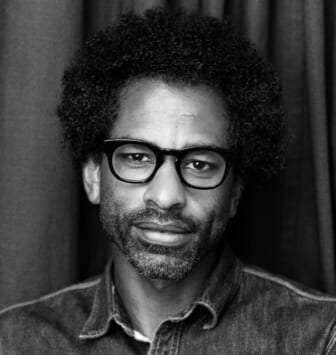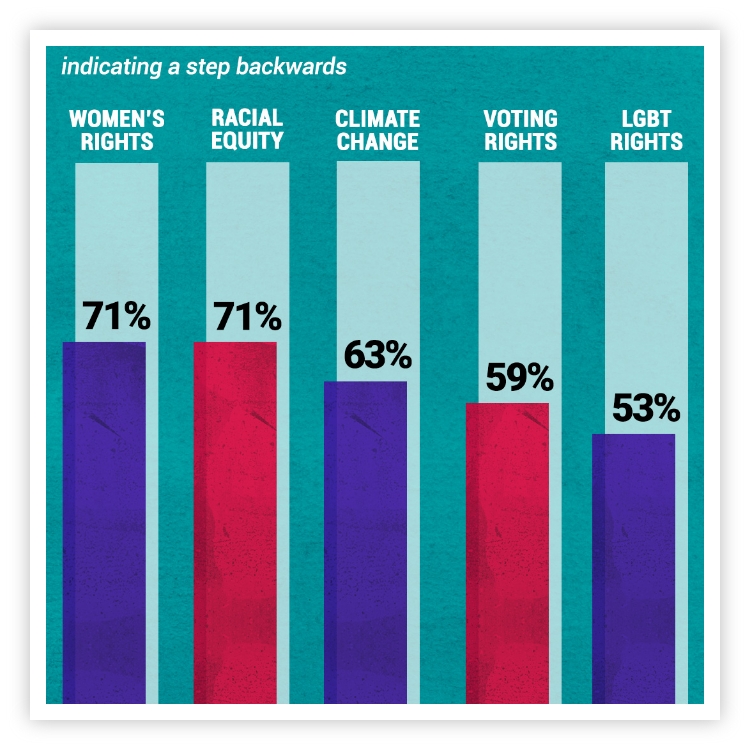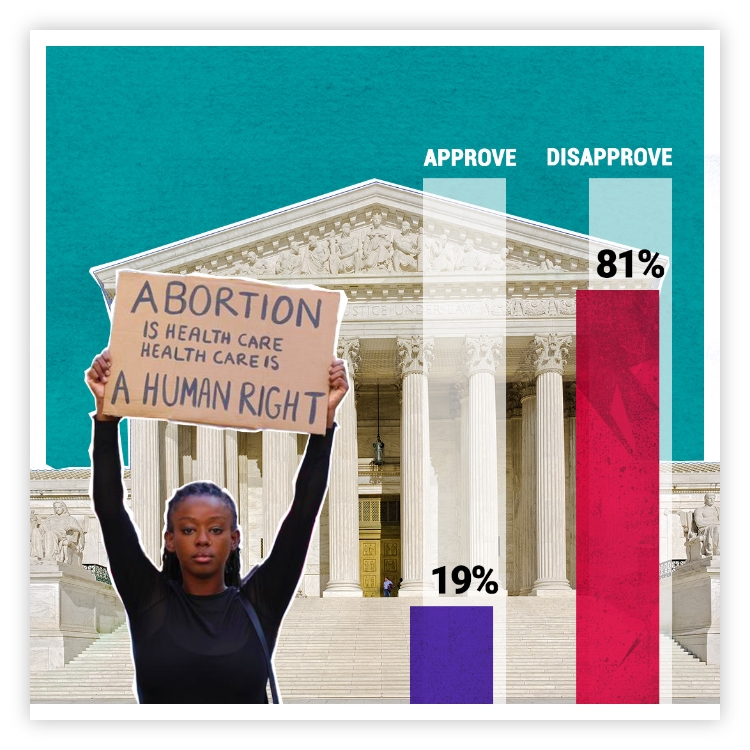Black voters surveyed by theGrio/KFF think the Supreme Court is politicized and see this as a bad sign for Black people
OPINION: A new theGrio/KFF survey found that 70% of Black voters believe the justices decide cases based on politics and ideology and 51% think the court's decisions will hurt Black people.

Editor’s note: The following article is an op-ed, and the views expressed are the author’s own. Read more opinions on theGrio.
The Supreme Court has become a completely politicized body as if it’s a miniature Senate where members use their party affiliation to make decisions rather than focusing on judicial concerns. The problem is not merely that there are more conservative justices than liberal justices. It’s that there are justices who seem as guided by their ideology as any politician. The new theGrio/KFF poll of Black voters finds that 70% of Black voters believe the U.S. Supreme Court justices mainly decide cases based on politics and ideology rather than the law. Black voters fully understand this dangerous trend, and they’re deeply concerned about it.
Two rulings in 2022 stand out as blatant examples of the politicization of the Supreme Court—Dobbs v. Jackson, which overturned Roe v. Wade, and New York State Rifle and Pistol Association v. Bruen, which vastly expanded the right to carry firearms outside the home. These rulings shift America far to the right and make the country less safe for women who need to terminate a pregnancy and for everyone who fears being shot. Two legal commentators writing for Bloomberg Law characterized the Dobbs decisions as a “frankly political decision dressed up as a legal opinion written by judges who were chosen because of their willingness to deliver publicly announced presidential campaign goals.”
The issue is not simply that the court is dragging the country to the right but also that the politicization of the court is eroding Americans’ trust in the court as a fair part of our government. We expect political infighting to shape Congress, but the court is supposed to be governed by legal principles, and even justices are speaking out about the trend. In late 2021, Justice Sonia Sotomayor said, “Will this institution survive the stench that this creates in the public perception that the Constitution and its reading are just political acts? I don’t see how it is possible.” In their dissent on the Dobbs ruling, Justices Stephen Breyer and Elena Kagan agreed that it “undermines the court’s legitimacy.” This is perhaps as dangerous as the rulings themselves—we may one day overturn these decisions, but if the American people lose faith in the court itself, then a critical aspect of American democracy could be lost forever.
Fifty-one percent of Black voters said they think the court’s recent decisions will hurt Black people. Seventy-one percent say the court’s recent decisions have been a step backwards on women’s rights and 53% feel we’ve gone backwards on LGBT rights. They’re absolutely right and the way the court looks now—with several justices who are right-leaning and young enough to serve for several more decades—we will probably see much more of the court taking the country backwards.
Do you think recent decisions by the Supreme Court have been a step forward or a step backward when it comes to each of the following?
Over the last six years, the court has moved rightward at a shocking speed because Trump and conservative allies like the Federalist Society carefully screened potential Supreme Court justices to make sure that they would fulfill the long-term conservative goal of overturning Roe v. Wade. Senate Minority Leader Mitch McConnell, R-Ky., was Trump’s partner in the effort to shove the court to the right—he ignored long-term Senate norms and blocked consideration of Merrick Garland, a President Obama selection, paving the way for Trump to install three right-wing justices on the court—Neil Gorsuch, Amy Coney Barrett and Brett Kavanaugh—which is why we now have a court with six conservatives and three liberals. Now we have an agenda-driven court dominated by ultra-conservative justices.
If it seems like the right wants to shrink rights for women, Blacks, gays and trans people that’s because that notion fits with the right’s ideology. The court now has many “originalists,” i.e. judges who interpret the Constitution based on their understanding of the original intention of the Founding Fathers. It may not appear racist to want to understand and honor the ideas of the founders, but back in 1776, the only people who mattered were straight white men, so, of course, the originalist mindset will center their needs. The world of 1776 didn’t care about Black people, women or the LGBTQ community. The Founding Fathers didn’t think about climate change or massive global corporations or guns with enough firepower to kill many people in seconds. To people from 1776, the world of 2022 would be as foreign as Mars would be to us. It seems crazy to ask us to be governed by a strict interpretation of words written more than 230 years ago. But that’s where we are.
Fighting against Roe was a powerful tool for the right and it motivated their base, but the party may soon realize that rallying people to vote against Roe was more powerful than actually defeating Roe. The majority of Americans did not want Roe to be overturned. TheGrio/KFF poll found that 81% of Black voters disapproved of the Supreme Court overturning Roe v. Wade. But as of now, it does not appear as though abortion will hurt Republicans in the midterms. Several astute political observers expect Democrats will lose control of the House and the race for the Senate is a dead heat. The Republicans worked long and hard to create a court that would destroy Roe, and even though many Americans disagree with that, there may be no negative political impact on them.
Do you approve or disapprove of the Supreme Court
overturning Roe v. Wade
Even if Democrats somehow deny political gravity and retain control of the House and the Senate, that won’t change the Supreme Court. The court will remain an overpoliticized, right-leaning mess for decades to come, and that will be a source of pain for everyone who’s not a straight white male. Many expect the court to attack gay marriage next. Then perhaps it will go after civil rights. The court is a monster that cannot be stopped and I, for one, truly fear the future that it could create.
About the Survey
The Survey of Black Voters is the first partnership survey between theGrio and KFF, a nonprofit organization focused on research and analysis of health and other national issues. Teams from KFF and theGrio worked together to develop the questionnaire and analyze the data, and both organizations contributed financing for the survey. Each organization is solely responsible for its content.
The survey was conducted Aug. 24–Sept. 5 with a nationally representative, probability-based sample of 1,000 adults who identify as Black or African American and are registered to vote. The sample includes all voters who identify as Black or African American, including those who also identify as Hispanic or multi-racial. The sampling design includes Black registered voters reached online through the SSRS Opinion Panel and the Ipsos KnowledgePanel; to reach Black voters who do not use the internet, additional interviews were conducted by calling back respondents who previously participated in an SSRS Omnibus poll and identified as Black and said they did not use the internet. The combined telephone and panel samples were weighted to match the sample’s demographics to the national U.S. population of Black voters using data from the Census Bureau’s 2020 Current Population Survey (CPS) Voting and Registration supplement. Sampling, data collection, weighting and tabulation were managed by SSRS of Glen Mills, Pennsylvania, in close collaboration with KFF researchers.
The results have a margin of sampling error of plus or minus 4 percentage points for results based on the full sample of Black voters. The full methodology and question-wording are available here.

Touré is a host and Creative Director at theGrio. He is the host of the podcast “Toure Show” and the podcast docuseries “Who Was Prince?” He is also the author of seven books including the Prince biography Nothing Compares 2 U. Look out for his upcoming podcast Being Black In the 80s.
TheGrio is FREE on your TV via Apple TV, Amazon Fire, Roku, and Android TV. Please download theGrio mobile apps today!




